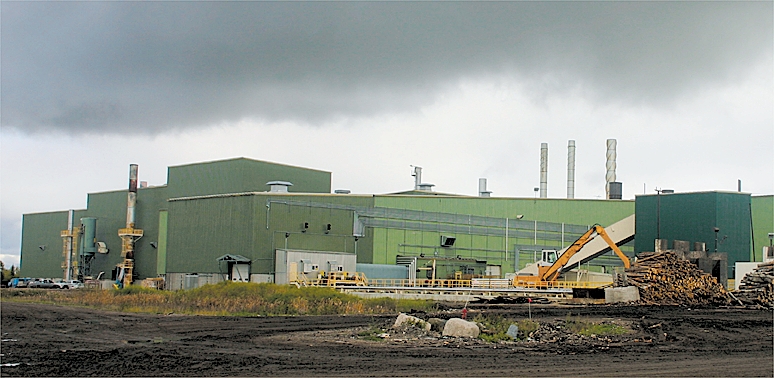Support the Timberjay by making a donation.
Cook waits on siding plant plans
Louisiana-Pacific CEO: Timeline announcement expected in April
COOK— Louisiana-Pacific has yet to make a final decision on its plans to open an engineered wood siding plant near Cook, but company officials indicate they continue to move forward with planning …
This item is available in full to subscribers.
Attention subscribers
To continue reading, you will need to either log in to your subscriber account, or purchase a new subscription.
If you are a current print subscriber, you can set up a free website account and connect your subscription to it by clicking here.
If you are a digital subscriber with an active, online-only subscription then you already have an account here. Just reset your password if you've not yet logged in to your account on this new site.
Otherwise, click here to view your options for subscribing.
Please log in to continue |
Cook waits on siding plant plans
Louisiana-Pacific CEO: Timeline announcement expected in April
COOK— Louisiana-Pacific has yet to make a final decision on its plans to open an engineered wood siding plant near Cook, but company officials indicate they continue to move forward with planning for the operation.
Company officials had originally anticipated a final decision by the company’s board of directors at their Feb. 1 meeting, but uncertainty over timelines and the relative costs of moving forward with the Cook plant ahead of a second recently acquired plant in Quebec, have prompted some indecision.
Louisiana-Pacific CEO Curtis Stevens told investors on Feb. 8 that he expects to announce which plant will be first in line during their next quarterly profits report, expected in April. “You will likely hear that we’ll do both, but most likely in a sequenced manner,” he said.
Stevens indicated that the Quebec plant, located in Val d’Or, offers some advantages for a quick start-up, including the fact that it already has an operational wood press. “The Cook plant would be a brownfield, so it will take longer to develop,” he said.
At the same time, Stevens indicated that the Quebec plant is small, which means it will provide only an incremental boost in its siding production, likely only supporting a year or two of additional sales growth.
He said he’d like to have the next siding plant operational by mid-2018, with the other facility coming on line before 2020.
The Quebec plant does face one challenge that will not affect the planned Cook facility. Unlike in the U.S., Canadian wood plants need licenses to obtain wood supply and Stevens said Louisiana-Pacific does not currently have those licenses in place in Val d’Or. By contrast, the company has been assured that there is sufficient wood supply in the Cook area to meet their needs. The company also anticipates that their overall cost of production will be lower in Cook than in Quebec.
Company officials note that their commitment and timelines for developing additional siding capacity assumes continued growth in demand, which is largely dependent on the state of the housing market. Currently, the company’s siding division continues to show strong sales growth, with total sales reaching $752 million in 2016, an increase of 18 percent over sales the prior year.
While the outlook for housing generally looks favorable, Stevens said President Trump’s desire to restrict immigration could slow growth in the housing sector, due to a lower numbers of new residents in the country as well as fewer available workers. “Any actions that limit the availability of workers will be bad for housing starts,” he said.
The company is also concerned, he said, about the impact of tariffs or other import duties, which President Trump is pushing for, and which could increase the cost of housing construction and possibly impact Louisiana-Pacific’s costs of importing their wood products from their Canadian operations.
Prospects for natural gas line
Louisiana-Pacific’s September 2016 acquisition of the former Ainsworth plant, near Cook, had renewed interest among northeastern Minnesota lawmakers in extending a natural gas line to the plant. Currently, natural gas lines terminate at the Inland Steel plant just north of Virginia. Sen. Minority Leader Tom Bakk, DFL-Cook, had said last fall that he would work to have the gas line extended to the plant site, and possibly beyond, as a means of lowering production costs at the facility. But Bakk said Louisiana-Pacific officials have told him that natural gas isn’t a top priority right now, given the relatively low cost of propane, which has been the energy source at the plant site for decades. Bakk said he’s still interested in having the line extended at some point, but it may not happen as quickly as he initially had hoped. “There’s just not a lot of urgency to it right now,” he said.






